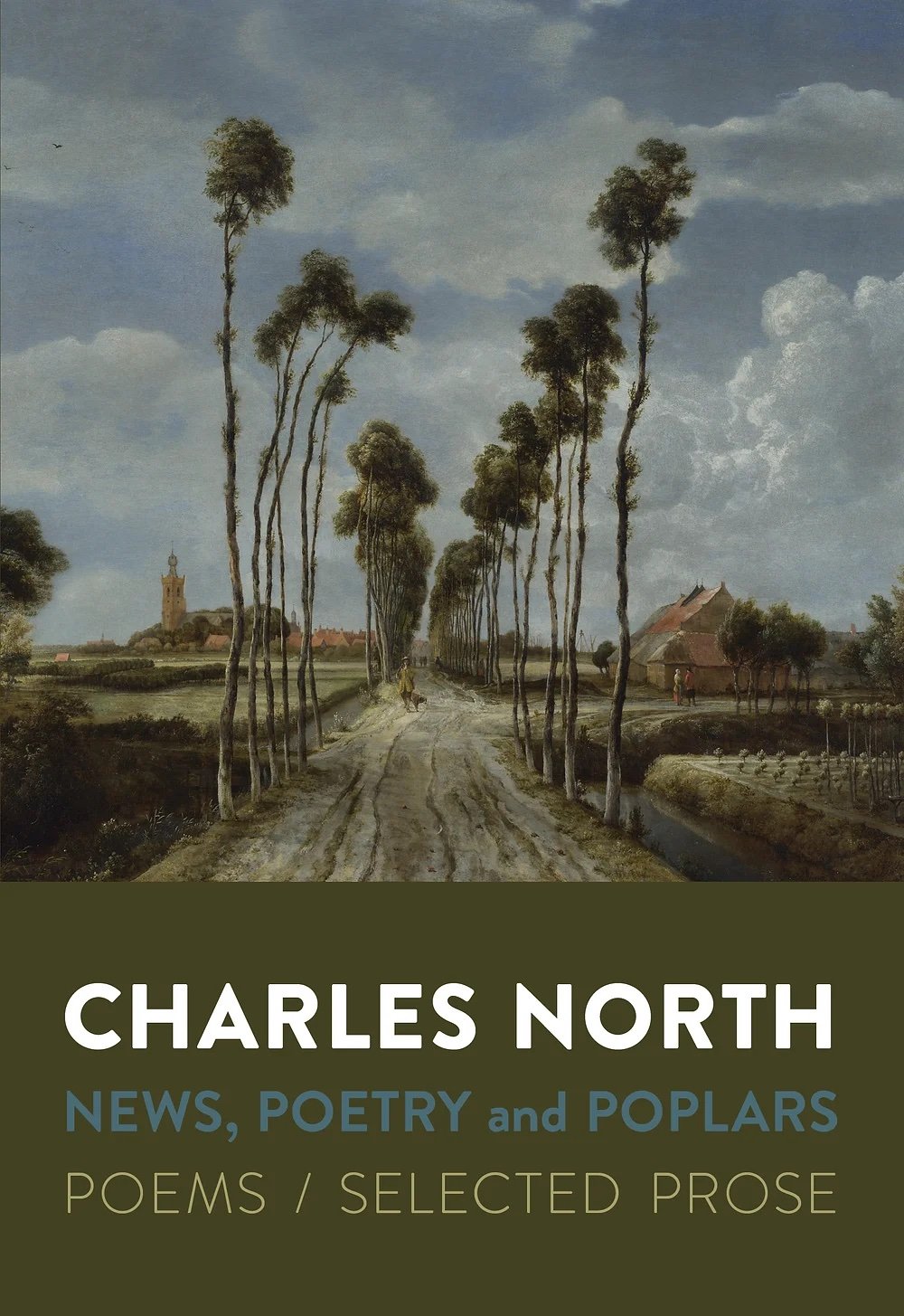 Image 1 of
Image 1 of


News, Poetry and Poplars: Poems / Selected Prose by Charles North
A new collection of poetry and prose from award-winning poet Charles North, whom James Schuyler described as “the most stimulating poet of his generation.”
NEWS, POETRY & POPLARS, Charles North’s 20th book, contains both poetry and selected prose (essays, interviews, memoirs and tributes, and smaller pieces). The poetry includes translations real and “fake,” baseball lineup poems, prose poems, poems written for collaborations with artists, and other experimental and lyrical works. A two-time NEA grantee, North has also received awards from the Foundation for Contemporary Art, the Poetry Foundation, and the Fund for Poetry. His recent EVERYTHING AND OTHER POEMS (The Song Cave, 2020) was named a NY Times New and Noteworthy book, and his new and selected poems, WHAT IT IS LIKE (Hanging Loose Press, 2011), headed NPR’s list of Best Poetry Books (2013).
A new collection of poetry and prose from award-winning poet Charles North, whom James Schuyler described as “the most stimulating poet of his generation.”
NEWS, POETRY & POPLARS, Charles North’s 20th book, contains both poetry and selected prose (essays, interviews, memoirs and tributes, and smaller pieces). The poetry includes translations real and “fake,” baseball lineup poems, prose poems, poems written for collaborations with artists, and other experimental and lyrical works. A two-time NEA grantee, North has also received awards from the Foundation for Contemporary Art, the Poetry Foundation, and the Fund for Poetry. His recent EVERYTHING AND OTHER POEMS (The Song Cave, 2020) was named a NY Times New and Noteworthy book, and his new and selected poems, WHAT IT IS LIKE (Hanging Loose Press, 2011), headed NPR’s list of Best Poetry Books (2013).
A new collection of poetry and prose from award-winning poet Charles North, whom James Schuyler described as “the most stimulating poet of his generation.”
NEWS, POETRY & POPLARS, Charles North’s 20th book, contains both poetry and selected prose (essays, interviews, memoirs and tributes, and smaller pieces). The poetry includes translations real and “fake,” baseball lineup poems, prose poems, poems written for collaborations with artists, and other experimental and lyrical works. A two-time NEA grantee, North has also received awards from the Foundation for Contemporary Art, the Poetry Foundation, and the Fund for Poetry. His recent EVERYTHING AND OTHER POEMS (The Song Cave, 2020) was named a NY Times New and Noteworthy book, and his new and selected poems, WHAT IT IS LIKE (Hanging Loose Press, 2011), headed NPR’s list of Best Poetry Books (2013).
About the Author
An active classical clarinetist in his youth, Charles North has lived most of his life in NYC. He began writing poems in his mid-20s. He has received two National Endowment for the Arts Creative Writing Fellowships, a Foundation for Contemporary Arts Grant, four Fund for Poetry awards, and a Poets Foundation Award. Among his twelve poetry collections, WHAT IT IS LIKE: NEW AND SELECTED POEMS (Hanging Loose Press, 2011) headed NPR's Best Poetry Books of the Year (2011), and his recent collection EVERYTHING AND OTHER POEMS (The Song Cave, 2020) was named a N.Y. Times New and Noteworthy Book. Other published work includes three books of critical prose, collaborations with artists and other poets, poetry chapbooks, and the poet-painter anthologies Broadway (Swollen Magpie, 1979) and BROADWAY 2 (Hanging Loose Press, 1989), which he edited with James Schuyler. He is Poet-in-Residence at Pace University.
Reviews
The poet James Schuyler called North “the most stimulating poet of his generation,” and the poet/novelist Harry Mathews said, “[North] belongs on the summit of our American Parnassus.” Of North’s prose, the poet and critic John Yau has written: “This is criticism at its best: a passionate, sympathetic reading that acknowledges the poet’s limitations while clarifying the particular strengths. You are not apt to read criticism this sensitive and analytical by well-known academic critics such as Helen Vendler or Marjorie Perloff…”
